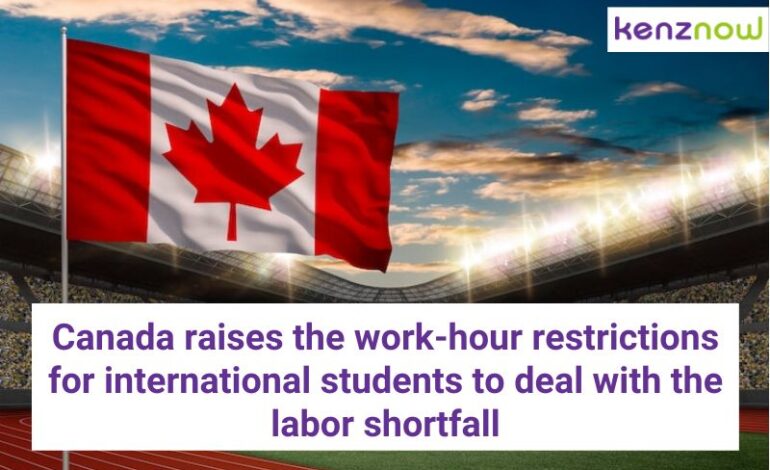Canada raises the work-hour restrictions for international students to deal with the labor shortfall

Immigration, Refugees, and Citizenship Minister Sean Fraser stated on 7 October, Friday that Canada is removing the 20-hour per week cap on the number of hours international students can work off campus. He cited the labor shortage as the reason for the decision.
Canada’s unemployment rate dropped from 6.0% in April 2022 to 5.4% in July. As of July, Canadian firms were actively searching to fill close to 1 million positions.
In Canada, at present, there are more job opportunities than employees. Employers are having “unprecedented difficulties locating and keeping workers.”
International students studying in Canada who have off-campus job permission included on their study permit will not be subject to the 20-hour restriction from November 15, 2022, to December 31, 2023.
IRCC is also launching a pilot project to automate some approvals of study permit extension applications, meant to address a backlog.
According to students, the 20-hour limit left them open to exploitation because many of them wind up working longer hours without benefits.
The government thinks that raising the cap will provide students with more career options, decreasing their likelihood of being taken advantage of by “unscrupulous businesses.”
In order to meet its labor force demands, Canada is increasingly reliant on temporary residents, particularly foreign students. Advocates and economists claim that this leads to an unstable workforce and can negatively impact everyone’s wages and working conditions.
There are more than 500,000 international students studying in Canada who may pick up extra jobs.



